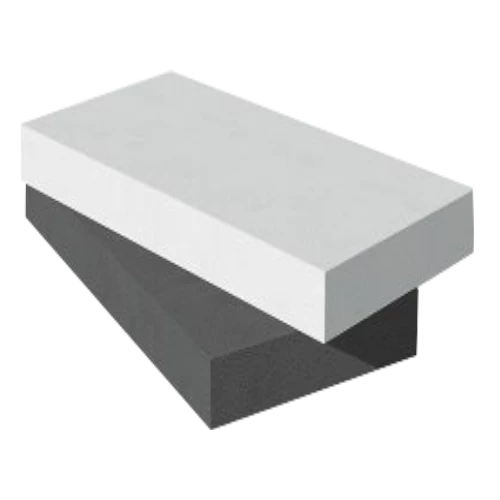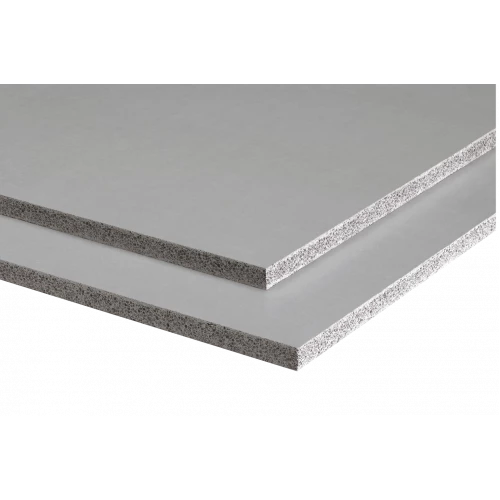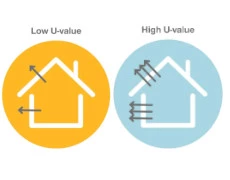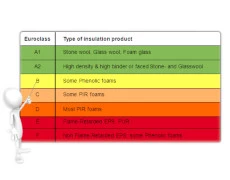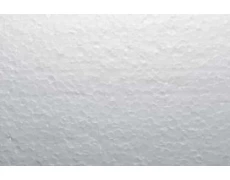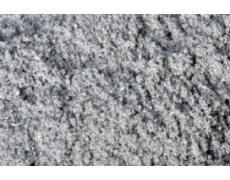IMPORTANCE OF HOME INSULATION
Thermal insulation has accompanied humans almost since the beginning of their existence. Our normal body temperature is 36.6°C, and the comfortable ambient temperature in which our bodies function best is around 21-22°C. Regardless of humans location in the world, they always strive to achieve this ambient temperature. Thermal insulation serves this purpose. In cold places where mild or severe winters occur, thermal insulation is now essential. Without it, our bills would be too high, not to mention the discomfort caused by temperature fluctuations inside our homes.
Thermal insulation is very important for humans due to their physiological body structure, everyday life comfort, and increasingly, the savings associated with its application.
Keeping their living or workplace warm is usually how thermal insulation benefits humans.
7✔ BENEFITS OF HOME INSULATION - WHAT ARE THEY?
Understanding the vital role of thermal insulation in human daily life requires considering both the 7✔ main benefits and the corresponding cons of home insulation.
It reduces the cost of heating and cooling by over 40%.
 Thanks to thermal insulation, we retain heat inside our homes, meaning that the gas boiler turns on less frequently, lowering our gas bills.
Thanks to thermal insulation, we retain heat inside our homes, meaning that the gas boiler turns on less frequently, lowering our gas bills.
Acoustical performance: reduces noise levels.
 High-density mineral wool with a density of 45kg/m3 provides a nearly 40dB reduction in noise levels. If you live near an airport or busy road, using such insulation will significantly reduce this noise.
High-density mineral wool with a density of 45kg/m3 provides a nearly 40dB reduction in noise levels. If you live near an airport or busy road, using such insulation will significantly reduce this noise.
It pays for itself in around five to six years.
 Choosing the highest R-value thermal insulation pays for itself within 5-6 years. After that, it's all benefits with no extra costs.
Choosing the highest R-value thermal insulation pays for itself within 5-6 years. After that, it's all benefits with no extra costs.
Reduces Your Carbon Footprint.
 By opting for thermal insulation, you'll use less gas, thus leaving a smaller footprint on the planet.
By opting for thermal insulation, you'll use less gas, thus leaving a smaller footprint on the planet.
It controls the indoor temperature.
 Thermal insulation prevents sudden temperature changes inside a room that would normally occur without it. This means we can wake up in the morning and feel the same temperature as when we went to bed.
Thermal insulation prevents sudden temperature changes inside a room that would normally occur without it. This means we can wake up in the morning and feel the same temperature as when we went to bed.
In most cases eliminates condensation on walls and ceilings.
 A well-insulated home, colloquially speaking, is one where warm air doesn't come into contact with cold air. This situation eliminates the possibility of mould formation on walls.
A well-insulated home, colloquially speaking, is one where warm air doesn't come into contact with cold air. This situation eliminates the possibility of mould formation on walls.
Enhances the value of your home.
 Insulated homes are much cheaper to maintain in winter. They're highly sought after among buyers, which increases their value compared to uninsulated homes.
Insulated homes are much cheaper to maintain in winter. They're highly sought after among buyers, which increases their value compared to uninsulated homes.
BENEFITS OF HOME INSULATION - ADVANTAGES AND DISADVANTAGES
Besides all the advantages offered by using insulation, it's important to mention their possible disadvantages. Fortunately, there aren't many.
The main drawbacks of using thermal insulation in your home include:
High purchase and installation costs.
The production of insulation involves the use of many natural and chemical components. This results in high production costs, hence the high final price of the product. When buying insulation for your home, you should expect costs ranging from £3000 to £5000, not including installation expenses.
Potential ventilation problems.
By effectively insulating your home, you're likely to seal off any natural air leaks that may have existed. This could result in inadequate airflow and ventilation problems due to insufficient air exchange.
BENEFITS OF HOME INSULATION - WHEN BUILDING
Opting to insulate your home during the construction phase eliminates problems with potential wall mould and weakening. The construction phase is the time for all related work, and since we don't live in the house yet, there's no need to adapt our lives around renovations that would be necessary if we were to insulate the house after its construction.
BENEFITS OF INSULATION - IN THE WORKPLACE
Nowadays, thermal insulation required for your workplace is becoming increasingly common, and for good reason. Employers are legally obligated to provide their employees with suitable working conditions, including maintaining optimal temperatures in the workspace. A well-insulated thermal workplace promotes higher efficiency among employees, as their bodies aren't overheated or excessively cooled. Moreover, a stable temperature in the workplace contributes to the employees' psychological well-being.
Related Searches:
THE DANGERS OF OVER INSULATING YOUR HOME
BEST LOFT INSULATION SOLUTIONS
THE PRICE OF COMFORT: UNRAVELLING WHY INSULATION IS SO EXPENSIVE
SHOULD I REMOVE 80 YEARS OLD INSULATION?
*Insulationgo LTD strives to keep the content accurate and up-to-date, but we cannot be held responsible for any mistakes or exclusions.
The information in this article isn't expert advice and shouldn't replace talking to the right specialists. Before buying or deciding anything based on this info, it's best to contact the product manufacturer directly to double-check if it's right for what you need.
Descriptions, drawings, photographs, data, proportions, weights, and measured values provided here may change without prior notice and do not establish the guaranteed contractual quality of the products. The recipient of these products holds the responsibility to comply with proprietary rights, existing laws, and legislation.
Using this articles implies acknowledgment and agreement that Insulationgo LTD cannot be held accountable for any damages, losses, or inconveniences resulting from the use or reliance upon the information provided. This limitation of liability extends to all users of the article, including visitors, readers, and subscribers.











